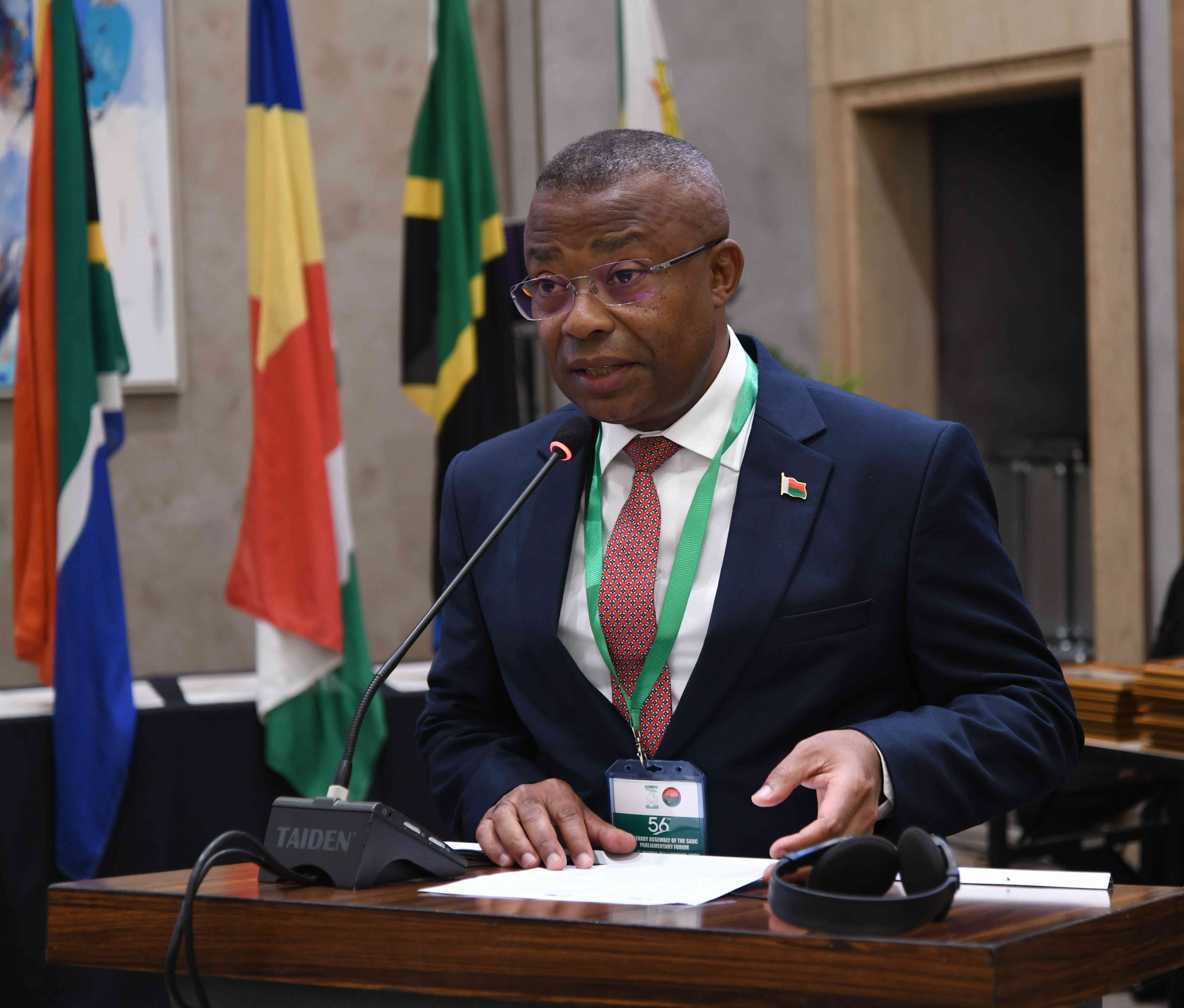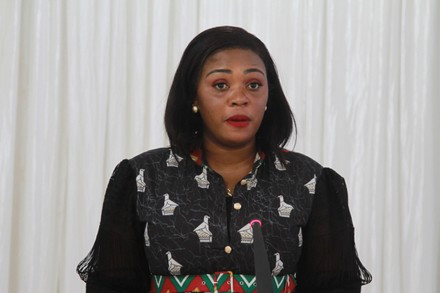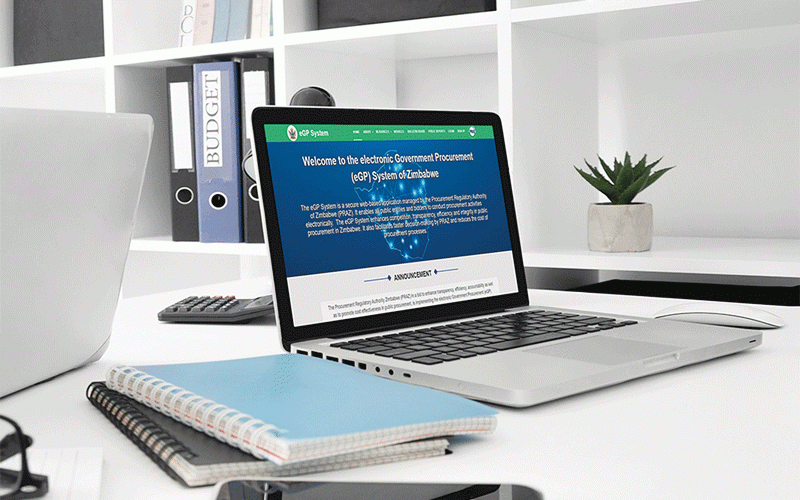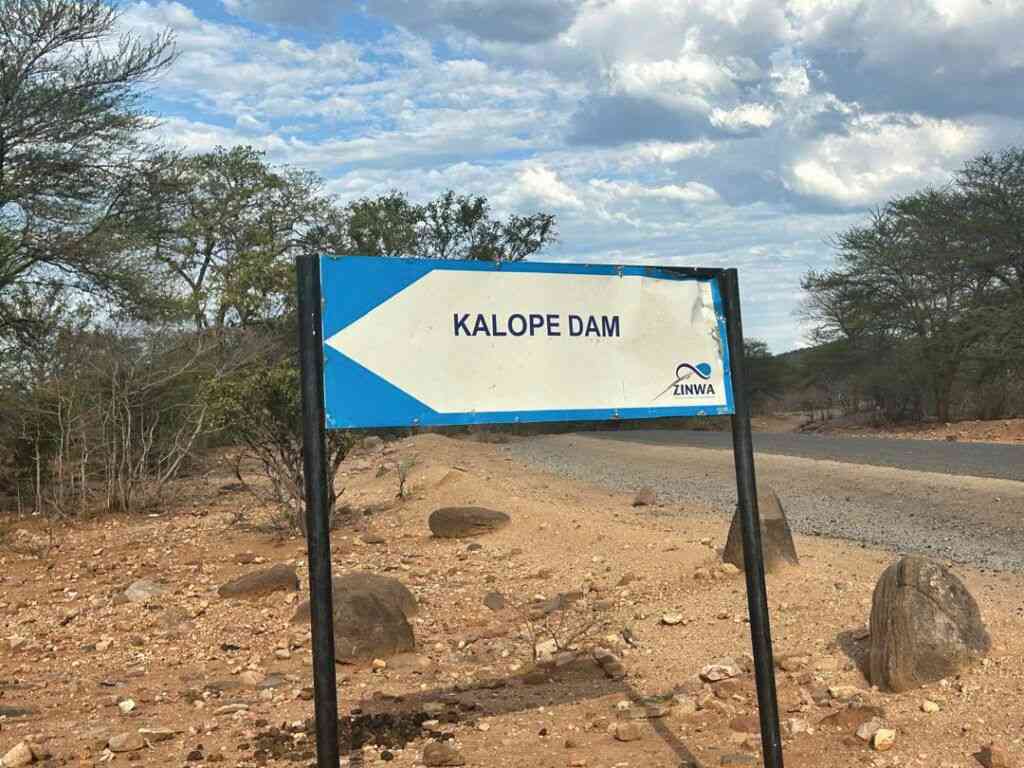
WINDHOEK, NAMIBIA , Jan 27 (NewsDayLive) – Newly-elected president of the Southern African Development Community Parliamentary Forum (SADC PF) Justin Tokely from Madagascar, has laid out a transformative roadmap aimed at addressing pressing socio-economic challenges while strengthening regional democracy.
In his first official communication to SADC PF member parliaments, partners and well-wishers since his election in December last year, Tokely who is also the Speaker of the National Assembly of Madagascar, shared his vision for 2024-2026, spotlighting socio-economic revival, accountability, legal reform, and health improvements across the region.
Socio-economic revival
He noted that the SADC region had faced significant setbacks in recent years.
“The impact of COVID-19, coupled with the ongoing conflicts in Eastern Europe, has disrupted economies and intensified inflation,” he said and added that climatic disasters had exacerbated the SADC region’s vulnerability, sparking concerns about disaster risk management frameworks.
Against this backdrop, he said the SADC PF would work closely with national parliaments to develop progressive policies that prioritise vulnerable groups, including women, children, and marginalised populations.
People-powered democracy
Central to the roadmap is the concept of “people-powered democracy,” which aims to ensure that democracy is driven by active citizen participation. The SADC PF, through its Standing Committee on Democracy, Governance, and Human Rights, is committed to fostering accountability by allowing citizens to shape legislative processes, he said.
- Young entrepreneur dreams big
- Chibuku NeShamwari holds onto ethos of culture
- Health talk: Be wary of measles, its a deadly disease
- Macheso, Dhewa inspired me: Chinembiri
Keep Reading
Tokely underscored the importance of oversight visits, public hearings, and awareness campaigns. In this connection, he said the Forum intends to expand partnerships with civil society organisations and other citizen groupings working on developmental issues.
Legal reform for integration
The SADC PF boss also outlined plans to harmonise laws across the region to facilitate better regional integration. He explained that misaligned laws are a barrier to progress. The regional body would thus focus on developing key Model Laws on Climate Action, Safe Abortion, Prison Oversight, and more to set benchmarks for legal progress. Additionally, ongoing initiatives like the Model Laws on Public Financial Management, Child Marriage, and Gender Based Violence would continue to promote inclusivity and equality.
Universal health coverage
Tokely reaffirmed the SADC PF’s commitment to advancing universal health coverage, describing it as a fundamental human right. He emphasised the need for a comprehensive health protection package covering areas like maternal health, safe abortion, and access to essential medicines. The SADC PF would continue its work on the SIDA-funded SRHR, HIV and AIDS Governance Project, which includes parliamentary interventions to advance responsive laws and budgets.
Holding power accountable
On governance, Tokely introduced the concept of a “Nowhere to Hide” oversight approach. This initiative aims to address corporate layering, where state-owned companies or entities operate covertly, beyond the reach of Parliament. A new SADC Model Law on the Rule of Law and Constitutionalism would establish this oversight as a norm.
Aligning with SDGs
Tokely said the SADC PF would work to align the region’s policies with sustainable development goals, particularly the goal to “Leave No One Behind.” He stressed that while Africa was progressing towards industrialisation, many people still lacked access to basic needs like food, clean water, and housing.
He outlined, also, transformative goals for the region, highlighting modernisation, digital innovation, gender equality, and regional integration as key pillars for future success.
Transformation of the SADC PF
Tokely commended progress made under the previous leadership of SADC PF in advancing the forum’s transformation agenda into a SADC Parliament. A major milestone, he highlighted, was the August 2024 ratification of the Agreement Amending the SADC Treaty, which established the SADC Parliament with the necessary backing from 12 out of 15 member states.
He observed that this development offered new opportunities for the SADC PF to finalise the Protocol on the SADC Parliament in line with its evolving institutional framework. He expressed confidence that this transformation would be fully realised by 2026, with ongoing support from key figures like Hon. Sylvia Elizabeth Lucas from South Africa, the newly elected Vice President of SADC PF.
Embracing the digital revolution
One of the major thrusts of the roadmap is the push for digital transformation within SADC member states. Tokely stressed that technological advancements in parliamentary processes are no longer optional but essential.
In collaboration with the Southern African Hub and the Inter-Parliamentary Union, the forum would focus on equipping parliaments with digital tools that enhance efficiency and accessibility. With the region’s rapid shift to 5G networks and high-speed internet, the forum would work towards integrating artificial intelligence into governance frameworks, from electoral campaigns to voting.
Advancing gender equality
Hon Tokely reiterated the SADC PF’s commitment to gender equality as a human right and a driver of sustainable development. He reaffirmed that gender parity would remain a priority, with the forum’s gender equality, women advancement and youth development committee and the Regional Women’s Parliamentary Caucus spearheading initiatives aimed at closing the gender gap across the region.
Climate action and disaster resilience
On climate action, Tokely urged SADC member states to enhance their nationally determined contributions (NDCs) under the Paris Agreement, aiming for net-zero emissions.
Under his stewardship, the forum would push for increased investment in renewable energy and climate action, especially considering the region’s vulnerability to climate-related disasters.
He underscored the importance of gender-responsive climate policies to ensure that women and young girls are not left behind in the climate agenda. The forum’s standing committee on food, agriculture, natural resources and climate action would continue its work on aligning national policies with global climate goals while considering the intersection of climate change with public health, social security, and housing.
Building a thriving trade and business hub
Tokely also spotlighted the region’s vast resources, including minerals, textiles, and food commodities. He said intra-SADC trade remains underdeveloped, accounting for less than 30% of member states’ imports.
He highlighted the importance of leveraging the African Continental Free Trade Area to reduce tariff and non-tariff barriers, increase trade partnerships, and promote intra-regional labor integration. The Forum’s Standing Committee on Trade, Industry, Finance, and Investment would continue to advocate for policies that facilitate trade and business growth within the SADC region.
Financial operations and sustainability
Tokely highlighted the ongoing review of the SADC PF’s financial operations under the leadership of Pinkie Rosemary Manamolela from Lesotho, treasurer of the forum. The goal is to modernise the accounting system and introduce digital tools for monitoring and evaluation. A zero-tolerance policy on corruption and fraud would continue, alongside regular updates on the forum’s whistleblowing policies.
Organisational efficiency
He emphasised human resource retooling to prepare staff for the eventual transition to a fully operational SADC Regional Parliament. He stressed the importance of succession planning, skill development, and inter-departmental migration to reduce costs and improve efficiency. These changes are intended to ensure that the forum’s staff is fully prepared for the new functions and responsibilities that will come with the establishment of the regional parliament.
Governance and internal audits
Tokely said the SAD PF remained committed to maintaining strong governance practices. He noted that successive clean internal audits are a testament to the forum’s dedication to transparency and accountability. Over the next two years, the audit and risk sub-committee would further strengthen internal controls, focusing on risk management, procurement processes, and financial systems, ensuring the forum’s long-term financial health and viability.
Tokely expressed optimism that his roadmap will provide guidance toward a more accountable, inclusive, and prosperous SADC.











